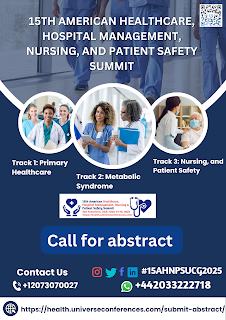How to lessen your risk of developing breast cancer:-
How to lessen your risk of developing breast cancer:-
The first step in preventing breast cancer is to adopt
healthy habits, like reducing alcohol use and engaging in regular physical
activity. Be aware of the steps you can take to lower your risk of developing breast cancer.
If you're worried that breast cancer will strike, you may be
asking if there are any precautions you can take to lessen the risk. It is
impossible to change some risk factors, such family history. You can reduce
your risk by making some lifestyle changes, though.
Choosing a Breast
Reconstruction Procedure:-
Reconstruction surgery is a popular choice among women, but
it may not be suitable for everyone. Learn more about breast reconstruction's
advantages and disadvantages as well as your other options.
Alternatives for BreastReconstruction:-
Breast reconstruction methods come in a wide variety of
forms. Some are carried out (or begun) concurrently with mastectomy or
lumpectomy, while others are carried out subsequently. Understand your choices
better.
Learn what to
anticipate:-
Being ready is essential if you intend to undergo breast
reconstruction surgery. Learn what your surgeon should tell you to expect and
what to expect both before and after your operation.
Breast Cancer
Prevention and Risk:-
Breast cancer cannot be entirely avoided. However, there are
things you can do to potentially reduce your risk, such as modifying risk
variables that are within your power to change.
The causes of breast
cancer risk factors:-
Anything that makes
you more likely to get a disease like cancer is a risk factor. Although having
one or more risk factors does not guarantee that you will develop the disease,
it does increase your risk. Several risk factors for breast cancer—family
history and aging, for instance—cannot be changed, but there are some that you
can.
Breast cancer: Is it
preventable?
Breast cancer cannot be entirely avoided. However, there are
certain things you may do to perhaps reduce your risk. This can be especially
beneficial for women who have certain breast cancer risk factors, like a long
family history of the disease or specific inherited gene alterations.
How can I lower my risk of developing
breast cancer?
According to research, even among high-risk women, changing
one's lifestyle can lower the risk of developing breast cancer. Reduce your
risk by:
Drink in moderation. Your risk of developing breast cancer
rises as you consume more alcohol. According to research on the impact of
alcohol on breast cancer risk, the general advice is to limit your intake to
one drink per day, as even little amounts raise risk.
Keep a healthy weight. Work to keep up a healthy weight if
you have one. Ask your doctor for advice on appropriate weight-loss methods if
you need to. Reduce your daily calorie intake and gradually increase the amount
of exercise.
Get some exercise. You can avoid breast cancer by eating a
nutritious diet and exercising regularly. The majority of healthy adults should
aim for 75 minutes per week of strenuous aerobic activity or at least 150
minutes per week of moderate aerobic activity, plus at least twice per week of
strength training.
Breast-feed. The prevention of breast cancer may be aided by
breastfeeding. The protective effect increases with breastfeeding duration.
Limit postmenopausal hormone replacement therapy. Breast
cancer risk may rise with combination hormone therapy. Ask your doctor about
the advantages and disadvantages of hormone therapy. With the help of
nonhormonal therapy and drugs, you may be able to control your symptoms.
Can breast cancer be
prevented with a good diet?
A nutritious diet may lower your risk of developing some
cancers, as well as diabetes, heart disease, and stroke. For instance,
extra-virgin olive oil and mixed nuts may lower the incidence of breast cancer
in women who follow a Mediterranean diet. The majority of the foods that make
up the Mediterranean diet are plant-based, including fruits, vegetables, whole
grains, legumes, and nuts.
The Mediterranean diet substitutes fish for red meat and
favours healthy fats like olive oil over butter. Keeping a healthy weight is
essential for preventing breast cancer.
Is there a connection
between breast cancer and birth control pills?
According to some research, hormonal contraception, which
includes hormone-releasing IUDs and birth control pills, raises the risk of
breast cancer. The risk is thought to be extremely low, though, and it goes
down once you stop using hormonal contraceptives.
According to a new study linking hormonal contraceptive use
to breast cancer, one more case of the disease can be anticipated for every
7,690 women who use hormonal contraception for at least a year.
Consult your doctor about your contraception alternatives.
Also take into account the advantages of hormonal contraception, which include
regulating menstrual bleeding, avoiding an unexpected pregnancy, and lowering
the risk of several diseases, such as ovarian and endometrial cancer.
Anything else I can do?
Be on the lookout for breast cancer. Consult your doctor if
you detect any changes in your breasts, such as a new lump or skin changes.
Additionally, according on your medical history, ask your doctor when to start
mammograms and other screenings.
Contact
Us:-
Reach out to us: https://breastcancerpathology.universeconferences.com/
Mail: pathology@universeconferences.com| info@utilitarianconferences.com |
breastcancer@ucgconferences.com
Whatsapp: +442033222718 Call: +12073070027
Previous Blog
Post Links:-
|
·
https://sites.google.com/view/bone-and-soft-tissue-pathology/home |
|
·
https://www.linkedin.com/pulse/following-mastectomy-breast-reconstruction-sweta-pradhan |


.png)


Comments
Post a Comment